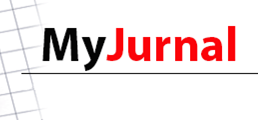About the Journal
The Journal of Project Management Practice (JPMP) (E-ISSN: 2805-4768) is a double blind peer-reviewed journal aims to advance the theory, research, and practice of all aspects of project management. JPMP publishes peer-reviewed scholarly articles, employing qualitative, quantitative, and other research methodologies, as well as theoretical and exploratory papers. To bridge theory and practice, it also features original and innovative case studies that are reviewed for their relevance to readers. By adopting a broader organisational perspective and covering a wide range of industries and professions, JPMP appeals to a diverse readership. This includes not only those interested in mainstream project management topics but also professionals engaged in multidisciplinary projects across sectors such as construction, engineering, oil and gas, business and finance, information technology, healthcare, aviation, maritime, and defense.
Frequency: Twice a year
Language: English
Indexing: MyJurnal
E-ISSN: 2805-4768
Inquiries: jpmp@um.edu.my


SCOPE OF JOURNAL
The scope and areas of specialisation for the journal are as follows:
Project Management Theory and Practices, Strategic Project Management, Project Governance, Programme Management, Portfolio Management, Human Resources Management, Organisational Theory & Behaviour, Quality Management, Value Management/ Value Engineering, Risk Management, Knowledge Management, Lean Management, Financial & Cost Management, ICT Management, Performance Management.
Additionally, it will also cover the scopes that are related to the management of the following areas; Health & Safety; Legal Issues, Economics, Professional Practice, Procurement, Contract and Commercial Management.
TRANSFER OF COPYRIGHT
JPMP accepts manuscripts that have not been published elsewhere and are not under consideration for publication by other print or electronic media. The authors agree to transfer the copyright of manuscripts accepted for publication to JPMP editorial office.
PUBLICATION ETHICS AND MALPRACTICE STATEMENT
The Journal of Project Management Practice (JPMP) is dedicated in ensuring best practices on ethical matters. The prevention of publication malpractice is one of the important responsibilities of the editorial team. Any kind of unethical behaviour is not acceptable, and the Editorial Board of this journal does not tolerate plagiarism in any form. Authors submitting articles to the JPMP affirm that manuscript contents are original and have not been published or considered for publication somewhere else.
OPEN ACCESS STATEMENT AND LICENSE
This is an open access journal which means that all content is freely available without charge to the user or his/her institution. Users are allowed to read, download, copy, distribute, print, search, or link to the full texts of the articles, or use them for any other lawful purpose, without asking prior permission from the publisher or the author. The article published in JPMP is licensed under CC BY-NC-ND 4.0





